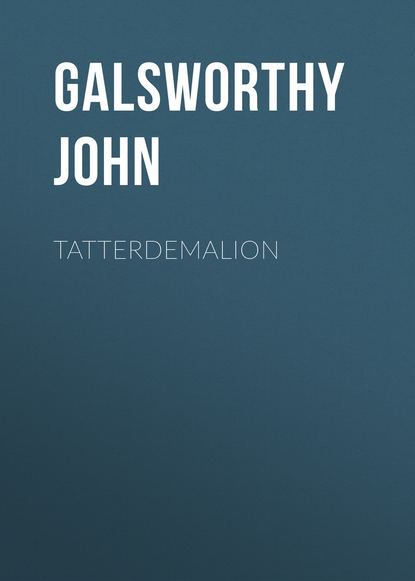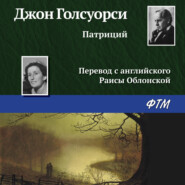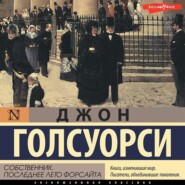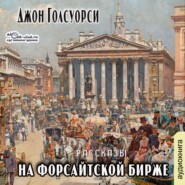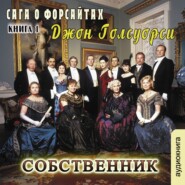По всем вопросам обращайтесь на: info@litportal.ru
(©) 2003-2024.
✖
Tatterdemalion
Настройки чтения
Размер шрифта
Высота строк
Поля
"Dear Mr. Harburn,
It was only on meeting my mother here yesterday that I learned of her visit to you one evening last December. I wish to apologise for it, since it was my illness which caused her to so forget herself. I owe you a deep debt of gratitude for having been at least part means of giving me the most wonderful experience of my life. In that camp of sorrow – where there was sickness of mind and body such as I am sure you have never seen or realised, such endless hopeless mental anguish of poor huddled creatures turning and turning on themselves year after year – I learned to forget myself, and to do my little best for them. And I learned, and I hope I shall never forget it, that feeling for one's fellow creatures is all that stands between man and death; I was going fast the other way before I was sent there. I thank you from my heart, and beg to remain,
Very faithfully yours
Harold Holsteig."
I put it down, and said:
"That's not ironical. He means it."
"Bosh!" said Harburn, with the old spark and smoulder in his eyes. "He's pulling my leg – the swinelet Hun!"
"He is not, Harburn; I assure you."
Harburn got up. "He is; I tell you he is. Ah! Those brutes! Well! I haven't done with them yet."
And I heard the snap of his jaw, and saw his eyes fixed fiercely on some imaginary object. I changed the subject hurriedly, and soon took my departure. But going down the steps, an old jingle came into my head, and has hardly left it since:
"The man recovered from the bite,
The dog it was that died."
1919.
X
IN HEAVEN AND EARTH
We were yarning after dinner, and, whether because three of us were fishermen, or simply that we were all English, our yarns were taking a competitive turn. The queerest thing seen during the War was the subject of our tongues, and it was not till after several tit-bits had been digested that Mallinson, the painter, ill and ironical, blue-eyed, and with a fair pointed beard, took his pipe out of his mouth, and said:
"Well, you chaps, what I saw last week down in Kent takes some beating. I'd been sketching in a hay-field, and was just making back along the top hedge to the lane when I heard a sound from the other side like a man's crying. I put my eye to a gap, and there, about three yards in, was a grey-haired bloke in a Norfolk jacket and flannel trousers, digging like a fiend, and crying like a baby – blowing, and gasping and sobbing, tears and sweat rolling down into his beard like rivers. He'd plunge his pick in, scratch, and shovel, and hack at the roots as if for dear life – he was making the hole too close to the hedge, of course – and all the time carrying on like that. I thought he must be digging his own grave at least. Suddenly he put his pick down, and there just under the hedge I saw a dead brown dog, lying on its side, all limp. I never see a dead animal myself, you know, without a bit of a choke; they're so soft, and lissom; the peace, and the pity – a sort of look of: "Why – why – when I was so alive?" Well, this elderly Johnny took a good squint at it, to see if the hole was big enough, then off he went again, sobbing and digging like a fiend. It was really a bit too weird, and I mouched off. But when I'd gone about half a mile, I got an attack of the want-to-knows, came back, and sneaked along the hedge. There he was still, but he had finished, and was having a mop round, and putting the last touches to a heap of stones. I strolled up, and said:
'Hot work, Sir, digging, this weather!'
He was a good-looking old grey-beard, with an intellectual face, high forehead and all that.
'I'm not used to it,' he said, looking at his blisters.
'Been burying a dog? Horrid job that! – favourite, I'm afraid.'
He seemed in two minds whether to shut me up and move off, but he didn't.
'Yes,' he said; 'it's cut me up horribly. I never condemned a creature to death before. And dogs seem to know.'
'Ah! They're pretty uncanny,' I said, for I wasn't going to let on, of course, that I had seen him.
'I wouldn't have done it but for the War,' he muttered; 'but she stole eggs, poor thing; you couldn't break her of it. She ate three times as much as any other dog, too, and in spite of it was always a perfect skeleton – something wrong inside. The sort of dog, you know, no one would take, or treat decently if they did. Bad habits of every kind, poor dear. I bought her because she was being starved. But she trusted me, that's why I feel so like a murderer. When the Vet and I were in the yard discussing her, she knew there was something wrong – she kept looking at my face. I very nearly went back on it; only, having got him out on purpose, I was ashamed to. We brought her down here, and on the way she found the remains of a rabbit about a week old – that was one of her accomplishments – bringing me the most fearful offal. She brought it up wagging her tail – as much as to say: 'See – I am some use!' The Vet tied her up here and took his gun; she wagged her tail at that, too; and I ran away. When the shot came, my own little spaniel fawned on me – they are uncanny – licked me all over, never was so gushing, seemed saying: 'What awful power you have! I do love you! You wouldn't do that to me, would you? We've got rid of that other one, though!' When I came back here to bury the poor thing, and saw her lying on her side so still, I made a real fool of myself. I was patting her an hour ago, talking to her as if she were a human being. Judas!'"
Mallinson put his pipe back into his mouth. "Just think of it!" he said: "The same creatures who are blowing each other to little bits all the time, bombing babies, roasting fellow creatures in the air and cheering while they roast, working day and night to inflict every imaginable kind of horror on other men exactly like themselves – these same chaps are capable of feeling like that about shooting a wretched ill cur of a dog, no good to anybody. There are more things in Heaven and Earth – !" And he relit his pipe, which had gone out.
His yarn took the prize.
1917.
XI
THE MOTHER STONE
It was after dinner, and five elderly Englishmen were discussing the causes of the war.
"Well," said Travers, a big, fresh-coloured grey-beard, with little twinkling eyes and very slow speech, "you gentlemen know more about it than I do, but I bet you I can lay my finger on the cause of the war at any minute."
There was an instant clamour of jeering. But a man called Askew, who knew Travers well, laughed and said: "Come, let's have it!" Travers turned those twinkling little eyes of his slowly round the circle, and with heavy, hesitating modesty began:
"Well, Mr. Askew, it was in '67 or '68 that this happened to a great big feller of my acquaintance named Ray – one of those fellers, you know, that are always on the look-out to make their fortunes and never do. This Ray was coming back south one day after a huntin' trip he'd been in what's now called Bechuanaland, and he was in a pretty bad way when he walked one evenin' into the camp of one of those wanderin' Boers. That class of Boer has disappeared now. They had no farms of their own, but just moved on with their stock and their boys; and when they came to good pasture they'd outspan and stay there till they'd cleared it out – and then trek on again. Well, this old Boer told Ray to come right in, and take a meal; and heaven knows what it was made of, for those old Boers, they'd eat the devil himself without onion sauce, and relish him. After the meal the old Boer and Ray sat smokin' and yarnin' in the door of the tent, because in those days these wanderin' Boers used tents. Right close by in the front, the children were playin' in the dust, a game like marbles, with three or four round stones, and they'd pitch 'em up to another stone they called the Moer-Klip, or Mother-stone – one, two, and pick up – two, three, and pick up – you know the game of marbles. Well, the sun was settin' and presently Ray noticed this Moer-Klip that they were pitchin' 'em up to, shinin'; and he looked at it, and he said to the old Boer: 'What's that stone the children are playin' with?' And the old Boer looked at him and looked at the stone, and said: 'It's just a stone,' and went on smokin'.
"Well, Ray went down on his knees and picked up the stone, and weighed it in his hand. About the size of a hazel-nut it was, and looked – well, it looked like a piece of alum; but the more he looked at it, the more he thought: 'By Jove, I believe it's a diamond!'
"So he said to the old Boer: 'Where did the children get this stone?' And the old Boer said: 'Oh! the shepherd picked it up somewhere.' And Ray said: 'Where did he pick it up?' And the old Boer waved his hand, and said: 'Over the Kopje, there, beyond the river. How should I know, brother? – a stone is a stone!' So Ray said: 'You let me take this stone away with me!' And the old Boer went on smokin', and he said: 'One stone's the same as another. Take it, brother!' And Ray said: 'If it's what I think, I'll give you half the price I get for it.'
"The old Boer smiled, and said: 'That's all right, brother; take it, take it!'
"The next morning Ray left this old Boer, and, when he was going, he said to him: 'Well,' he said, 'I believe this is a valuable stone!' and the old Boer smiled because he knew one stone was the same as another.
"The first place Ray came to was C – , and he went to the hotel; and in the evenin' he began talkin' about the stone, and they all laughed at him, because in those days nobody had heard of diamonds in South Africa. So presently he lost his temper, and pulled out the stone and showed it round; but nobody thought it was a diamond, and they all laughed at him the more. Then one of the fellers said: 'If it's a diamond, it ought to cut glass.'
"Ray took the stone, and, by Jove, he cut his name on the window, and there it is – I've seen it – on the bar window of that hotel. Well, next day, you bet, he travelled straight back to where the old Boer told him the shepherd had picked up the stone, and he went to a native chief called Jointje, and said to him: 'Jointje,' he said, 'I go a journey. While I go, you go about and send all your "boys" about, and look for all the stones that shine like this one; and when I come back, if you find me plenty, I give you gun.' And Jointje said: 'That all right, Boss.'
"And Ray went down to Cape Town, and took the stone to a jeweller, and the jeweller told him it was a diamond of about 30 or 40 carats, and gave him five hundred pound for it. So he bought a waggon and a span of oxen to give to the old Boer, and went back to Jointje. The niggers had collected skinfuls of stones of all kinds, and out of all the skinfuls Ray found three or four diamonds. So he went to work and got another feller to back him, and between them they made the Government move. The rush began, and they found that place near Kimberley; and after that they found De Beers, and after that Kimberley itself."
Travers stopped, and looked around him.
"Ray made his fortune, I suppose?"
"No, Mr. Askew; the unfortunate feller made next to nothin'. He was one of those fellers that never do any good for themselves."
"But what has all this to do with the war?"
Again Travers looked round, and more slowly than ever, said:
"Without that game of marbles, would there have been a Moer-Klip – without the Moer-Klip, would there have been a Kimberley – without Kimberley, would there have been a Rhodes – without a Rhodes, would there have been a Raid – without a Raid, would the Boers have started armin' – if the Boers hadn't armed, would there have been a Transvaal War? And if there hadn't been the Transvaal War, would there have been the incident of those two German ships we held up; and all the general feelin' in Germany that gave the Kaiser the chance to start his Navy programme in 1900? And if the Germans hadn't built their Navy, would their heads have swelled till they challenged the world, and should we have had this war?"
He slowly drew a hand from his pocket, and put it on the table. On the little finger was blazing an enormous diamond.
"My father," he said, "bought it of the jeweller."
The mother-stone glittered and glowed, and the five Englishmen fixed their eyes on it in silence. Some of them had been in the Boer War, and three of them had sons in this. At last one of them said:





